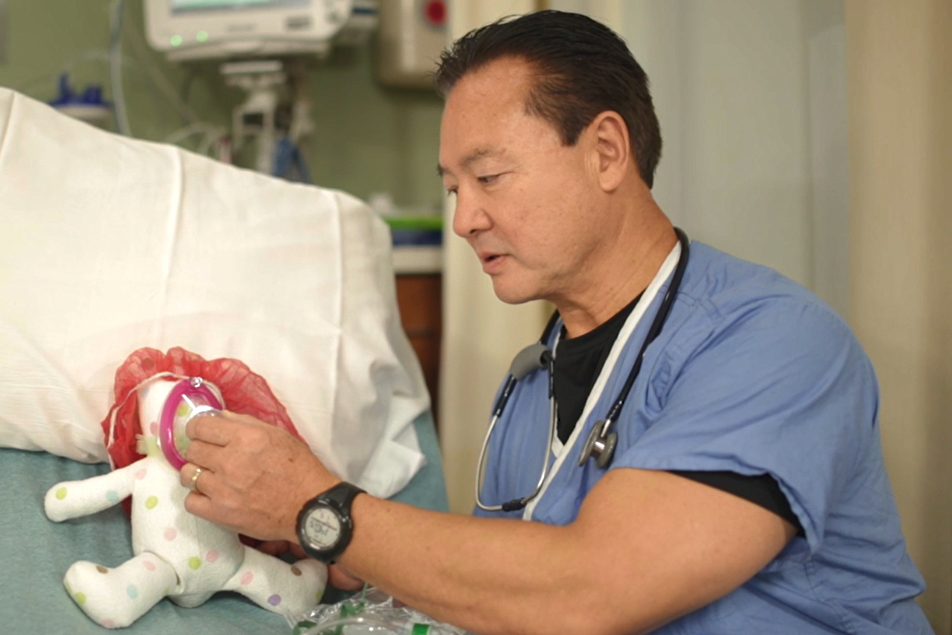Anthony Cheng, MD, PPG – Anesthesiology, addresses concerns parents might have when their child requires anesthesia for a medical procedure.
How is the anesthesia process different for children?
For children, we have different approaches. Children don’t have systemic illness like some adults have. They’re also anatomically slightly different. If the patient is younger, we typically don’t even do an IV until they’re asleep. We use a mask and administer a mix of oxygen and anesthetic gases.
I like to make the child laugh and put them at ease, but each practitioner is a little different. When I come in, I talk to the child first, ask them for a high five or fist bump, and their willingness to do these things helps me gauge how nervous they are. I include them in the conversation and tell them that we’ll take good care of them.
I’ll bring in a mask and glove and show them how the air can blow up the glove like a balloon. They see how safe and nonthreatening it is. Things like this make them much less nervous. I never show them needles.
What can parents do to reduce their child’s fear or anxiety?
Children will reflect the parent. If the parent is nervous, the child will pick up on that, and be afraid. The more relaxed and calm you are, the calmer and relaxed your child will be.
Another helpful thing is to bring a stuffed animal with you. The staff will put a mask and bandage on the toy. This helps the child visualize what’s going to happen to them and feel more relaxed. For the child, the stuffed animal is a real part of their world, and if you put those things on the toy and it’s fine, they realize they will be fine, too.

What can you tell parents to ease their own fear or anxiety?
Oftentimes, it’s the parents who are more nervous than the children, but you have to remember, your child is there to receive care that will improve his or her life.
What should parents expect following anesthesia?
Parents can expect that their child will act differently, like adults do. Some might have nausea or vomiting, which we try to prevent. We’ll give them pain medicine to make them more comfortable. Liquid Tylenol® and ibuprofen are appropriate for addressing pain concerns moving forward. Most anesthetics are fairly smooth and children don’t experience issues as it wears off.




